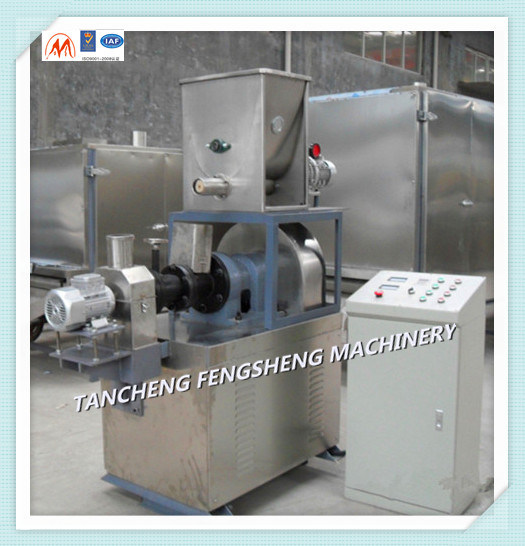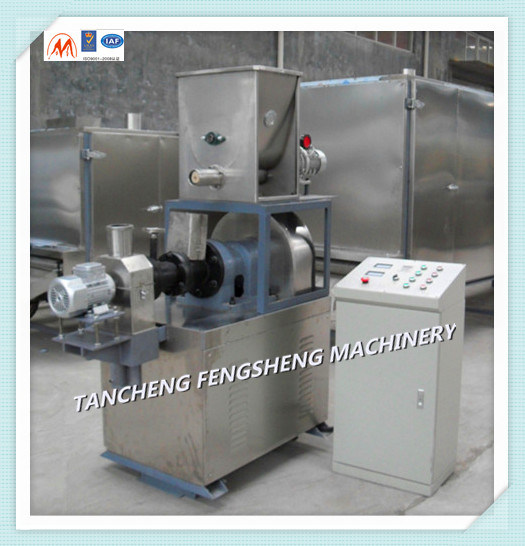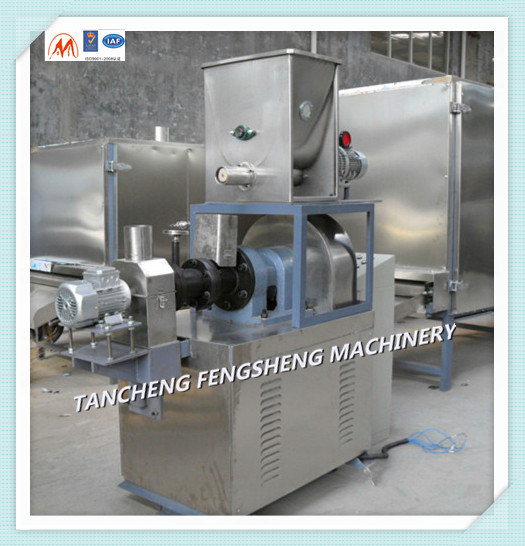Extruder for Animal Feedstuff, and Floating Pellet
Building Window Glass Film, also known as window film or window tint, is a thin layer of material that is applied to the surface of windows in buildings. It is designed to enhance the performance and appearance of windows while providing various benefits to the occupants. Safety film , Mirror tint,Building window glass film,architectural glass film Guangzhou Fuyulai Technology Co.,Ltd , https://www.fylvinyl.com
Briefs:
Through years of research and development, we improved some models floating fish feed processing lines, which are fitting for different output and fish breeds. By adjusting the raw materials, temperature and pressure etc. productive technology, our products can produce the floating fish feed with the advantages of novel shapes, abundant nutrition, exquisite texture and slow sinking speed. Our floating fish feed machineries are the ideal choice for all kinds of fishes.
Â
Advantage:
Â
Specificatioins:
Model
Capacity kg/h
Screw qtty
Screw dia
(mm)Screw length
(mm)L/D ratio
Frequency converter
Main motor
(kw)Feeder motor
(kw)Cutting motor
(mm)
Size
(mm)
FSDLG60
50-70
1
60
545
9.08:1
1 set
15
0.75
0.75
1420X750X1800
FSDLG80
80-100
1
80
711
8.89:1
1 set
22
0.75
0.75
1500X860X1830
 


One of the primary purposes of building window glass film is to regulate the amount of sunlight and heat that enters a building. The film can block a significant amount of ultraviolet (UV) rays, which can cause fading and damage to furniture, flooring, and artwork. By reducing the amount of UV rays that enter a building, window film helps to preserve the interior and prolong the lifespan of valuable assets.
In addition to UV protection, window film also helps to regulate the amount of heat that enters a building. It can block a significant portion of solar heat, which can reduce the need for air conditioning and lower energy costs. By reducing the heat gain, window film creates a more comfortable indoor environment and helps to maintain a consistent temperature throughout the building.
Another benefit of building window glass film is its ability to enhance privacy and security. Depending on the type of film chosen, it can provide varying levels of privacy by obscuring the view from the outside. This is particularly useful for buildings located in busy or densely populated areas. Additionally, window film can make it more difficult for intruders to break through the glass, adding an extra layer of security to the building.
Window film also has aesthetic benefits. It can improve the appearance of windows by giving them a sleek and uniform look. There are various types of window film available, including frosted, mirrored, and decorative films, allowing for customization to suit the design preferences of the building.
Furthermore, window film can contribute to the overall sustainability of a building. By reducing the need for air conditioning and artificial lighting, it helps to conserve energy and reduce carbon emissions. Additionally, window film is a cost-effective solution compared to replacing windows entirely, making it an attractive option for building owners and managers.
In conclusion, building window glass film is a versatile and beneficial addition to any building. It provides UV protection, regulates heat and sunlight, enhances privacy and security, improves aesthetics, and contributes to sustainability. With its numerous advantages, window film is a valuable investment for both residential and commercial buildings.
